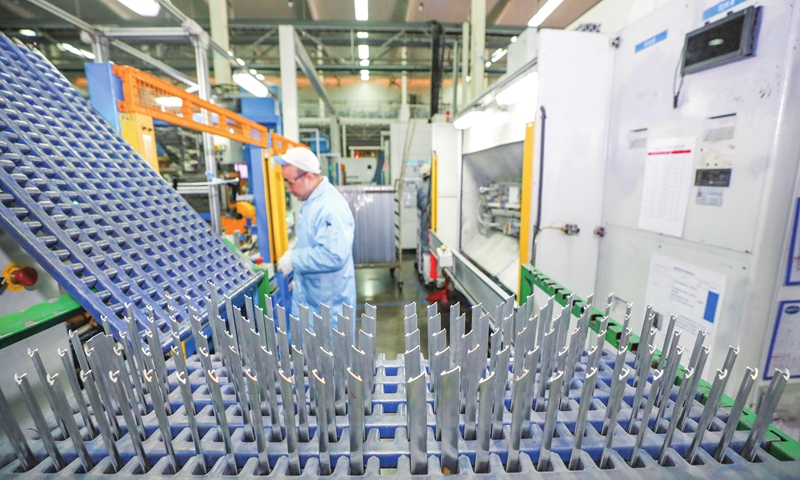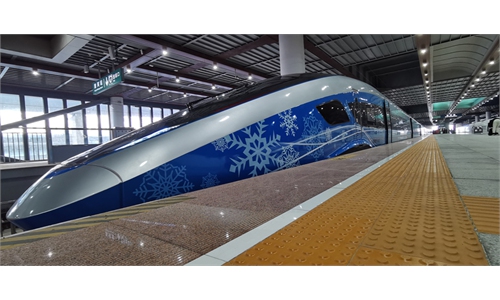
Workers process parts at an automobile technology firm in Huai’an, East China’s Jiangsu Province on November 2, 2021. As the end of the year approaches, the firm is ramping up production to deliver overseas orders from the US, Europe, Japan and Southeast Asia. Photo: cnsphoto
China’s “industrial mother machines” – machines used to manufacture machines – have made great strides in the past ten years, strongly supporting national defense and manufacturing, Wang Weiming, an official from the Ministry of Industry and Information Technology (MIIT), said at a press conference on Tuesday.
For more than 10 years, the independent development capability and industrial technology level of China's industrial mother machines have significantly improved, with breakthroughs in a number of key core technologies such as fully digital high-speed, high-precision motion control and multi-axis linkage, he said.
In terms of industrial supporting systems, the market share of domestic machine tools has increased from less than 1 percent to 31.9 percent, he said.
Wang said the production equipment for aircraft structural parts is autonomous and controllable, and the manufacturing equipment for aero-engine turbine disks and blades has grown from scratch.
The domestic and global market share of China’s automobile stamping has reached 80 percent and 40 percent respectively, and power generation equipment manufacturing has realized the transformation from import-based to exports, he said, adding that China has mastered the ability to independently manufacture large parts and components of ships.
Wang said China will continue to make breakthroughs in core industries, and promote further development of industrial mother machines.
Data from the MIIT showed that the added value of China's manufacturing sector increased from 16.98 trillion yuan ($2.46 trillion) in 2012 to 31.4 trillion yuan in 2021.
To promote the transformation of the manufacturing industry, China has built a modern industrial system led by advanced manufacturing and is moving into the middle and high-end of the value chain.
China will see 70 percent of its major manufacturing firms basically digitalized and build more than 500 industry-leading smart-manufacturing demonstration plants by 2025, according to a development plan issued by the MIIT with other departments.


